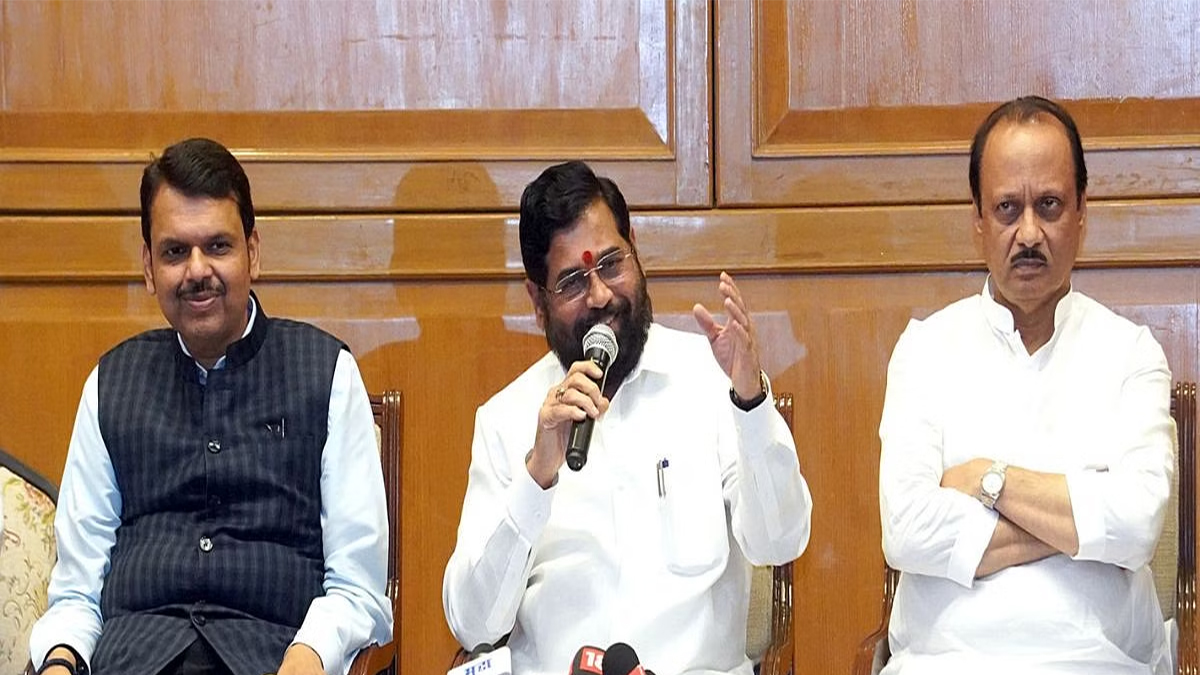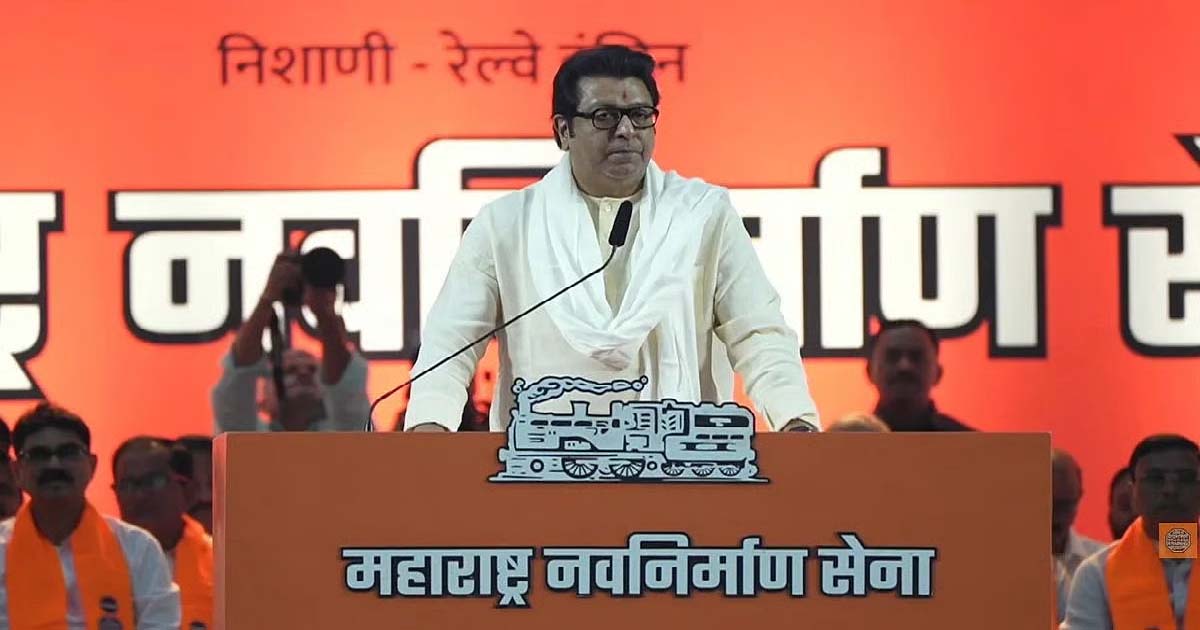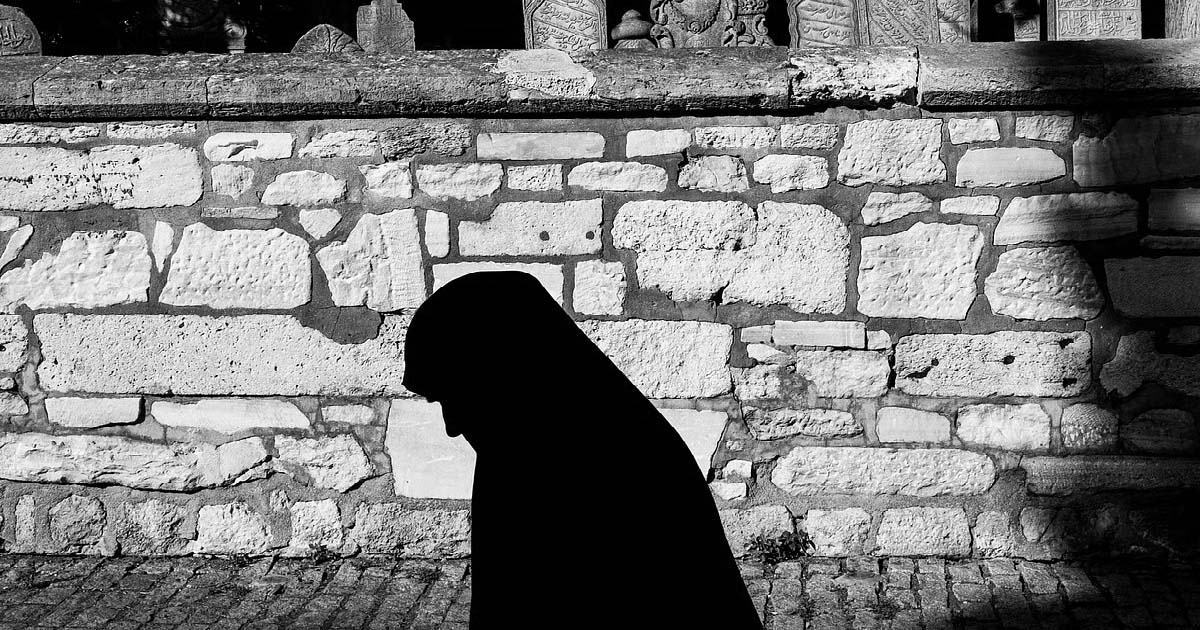Maharashtra
Monsoon Session Of Maharashtra Legislature Begins Today

Mumbai: The Monsoon Session of the Maharashtra legislature is set to begin in Mumbai on Monday. The three-week session would be held from Monday (July 17) till August 4 at the Vidhan Bhavan Complex in Nariman Point. It will be the first session after former Leader of Opposition and NCP leader, Ajit Pawar, broke ranks with his uncle, Sharad Pawar, who is also the Nationalist Congress Party (NCP) supremo and joined hands with the BJP-Shiv Sena alliance along with a bunch of NCP MLAs.
The Monsoon session has 24 proposed bills. Out of these, 10 have got the nod from the Cabinet and 14 are yet to be passed by the cabinet and would be tabled following that.
Six ordinances already in effect to be tabled too
One bill which has already been passed by he Legislative Council will be tabled in the Assembly. Moreover, one bill that is pending with the joint committee of both houses is also expected to be tabled.
Apart from these 24 bills, 6 ordinances already in effect will also be tabled in the monsoon session to get the legislature’s approval. In addition to these, six ordinances that are already in effect will be tabled in the monsoon session to get approval from the legislature.
Earlier on Sunday, Deputy Chief Minister Devendra Fadnavis on Sunday said that government will not misuse its current position in the State Assembly even though the numbers of the alliance have increased in the House.
CM Shinde, Deputies Fadnavis & Ajit Pawar hold joint presser
On the eve of the State Assembly session, Deputy Chief Minister Devendra Fadnavis alongside CM Eknath Shinde, and Deputy CM Ajit Pawar held a joint press conference and said that government will not misuse its current position in the State Assembly even though the numbers of the alliance have increased in the House.Devendra Fadnavis said that the Eknath Shinde government will address all issues related to the welfare of the people which will be raised by the opposition. “Maharashtra legislature Monsoon session starts from tomorrow. We will discuss all the issues during the session. Even though our strength has increased we will make sure that we do not misuse it and address all the issues related to the welfare of the people that will be raised by the opposition,” he said.
CM Shinde: Oppn should praise govt when it does something right
In the joint conference, Chief Minister Shinde said that opposition should raise the questions against the state government for the welfare of people but also praise when government does something right.
“As always Opposition boycott Tea program of the monsoon session. We will discuss all the issues during the session. More than 210 MLAs are with us (current government). Opposition must question us if we are doing wrong, questions must be raised for the welfare of the people. It is the duty of the opposition to praise the government when the government does something right,” CM Shinde said.
Maharashtra
Raj Thackeray Appears Before Thane Court, Denies Guilt In 2008 Railway Assault Case

MNS chief Raj Thackeray appeared before the Thane Railway Court on Thursday for a hearing linked to the 2008 railway recruitment violence at Kalyan station. The incident involved MNS workers assaulting North Indian candidates who had arrived for recruitment exams, leading to disruption and damage to railway property. A case was registered against Thackeray and several party workers soon after.
During the brief hearing, the judge asked Thackeray whether he confessed to the charges. Thackeray replied that he did not admit guilt. The judge noted that the matter could be concluded within a month and asked for full cooperation from all accused. Thackeray agreed to comply.
Speaking after the hearing, Thackeray’s lawyer Omkar Rajurkar said the next date has not been decided yet and will be issued later. He added that Thackeray does not need to appear again in person unless directed. Rajurkar confirmed that the court asked whether the accused admitted to the crime, and Thackeray stated clearly that he did not. The judge reiterated that cooperation was expected as the case nears completion.
Rajurkar stressed that Thackeray would continue to cooperate fully with the proceedings.
The case dates back to 2008, when MNS workers allegedly targeted North Indian candidates at Kalyan station during a railway recruitment drive. The attackers argued that migrant job seekers were taking opportunities meant for local youth. Following the violence, a case was filed against Raj Thackeray and seven MNS workers, all of whom were arrested but later released.
Originally heard in the Kalyan Court, the matter was later shifted to the Thane Railway Court. Due to repeated absence of the accused at earlier hearings, the court had issued an arrest warrant, which was later cancelled after an application by Thackeray’s legal team.
With the court indicating that the case could conclude within a month, the matter now moves towards its final phase.
Maharashtra
Mumbai To Host 33rd International Sunni Ijtema At Azad Maidan From Dec 12–14

Preparations are underway for the 33rd annual international Sunni Ijtema, scheduled from December 12 to 14, 2025, at Azad Maidan, Mumbai. Considered the largest Sunni religious congregation in India, the event is organised by Sunni Dawate Islami (SDI), a global non-political organisation active in religious, charitable, and educational initiatives.
This year’s Ijtema coincides with 1,500 years of Islam, marked by the central theme “Celebrating 1500 Years of Guidance & Mercy brought by the Messenger of Mercy.”
The event has historically attracted hundreds of thousands of participants, including women, youth, and international scholars who address contemporary issues through an Islamic lens. This year’s discussions include artificial intelligence, digital finance, and modern trade ethics.
The Ijtema opens Friday evening with programmes exclusively for women. Key topics include.
Women as Seekers of Knowledge
Women’s Right to Inheritance
Character and Modesty as the True Ornament of a Muslim Woman
Lessons from the Marital Life of the Prophet
Scholars will also explain Islamic provisions on Khula, a wife’s right to initiate divorce by returning the dower or mutually agreed compensation. The session will highlight that Islamic teachings on knowledge are not gender-specific, with examples such as:
Hazrat Aisha, a revered scholar and instructor to many sahaba
Fatima Al-Fihri, founder of the University of Al-Qarawiyyin, considered one of the world’s oldest universities
Other sessions will address women’s rights to financial maintenance, choosing a spouse, and the pivotal role of education in shaping society. Over 1,00,000 women are expected to attend.
The second and third days are dedicated to men. Themes for the two days include:
Pleasing Allah by Serving Creation
The Spiritual Life of the Prophet
Religious Information and Artificial Intelligence
New Age Issues, Digital Finance, Family and Trade — a Q&A with Mufti Nizamuddin
Moral and Spiritual Development of Youth: From Distraction to Discipline
As every year, career guidance and higher education counselling will be conducted by Team SDI Ummeed. A mass prayer for global peace and prosperity will conclude the event. More than 2,00,000 men are expected to participate.
Renowned International Scholars to Address the Gathering
Allama Shakir Ali Noorie (Founder, SDI)
Allama Qamruzzaman Khan Azmi
Allama Qari Zahiruddin Khan
Mufti Nizamuddin Razavi
Sayyed Khalid Al-Gilani
Sayyed Moin Ashraf
Sayyed Aminul Qadri
Maulana Yunus Misbahi
Qari Rizwan Khan
Dr Waqaruzzama Azmi
Maulana Arif Patel
Al-Haj Sadiq Razavi
SDI president Hazrat Allama Shakir Ali Noorie and chief mentor Hazrat Allama Qamruzzaman Khan Azmi continue to be featured in the “500 Most Influential Muslims” list published annually by The Royal Islamic Strategic Studies Centre, Amman, Jordan.
A dedicated box for clarity:
Facilities
Large number of ablution areas (Wudu Khana)
Ample restroom facilities
60+ CCTV cameras across the ground
2,000 female volunteers for women’s day
1,000+ male volunteers for Day 2 and Day 3
Police have advised attendees:
Not to carry handy cameras, laptops, wires, batteries, matchboxes, lighters, nail cutters, or other battery-operated electronic devices
No vehicle parking motorcycles or any other vehicles will be permitted around Azad Maidan
Crime
Kalyan: Jewellery Worth ₹5.5 Crore Stolen From Siddheshwar Express; CCTV Shows Masked Suspects

A sensational theft aboard the Siddheshwar Express has shocked passengers and police alike, after jewellery worth ₹5.50 crore was allegedly stolen by a group of masked suspects who were seen getting off the train at Lonavala railway station.
According to railway police, CCTV footage shows five to six masked individuals carrying two trolley bags believed to contain the stolen jewellery. Their covered faces have made identification difficult.
One person has been detained by the Railway Crime Branch, and his role in the case is currently under scrutiny.
The complainant, Abhaykumar Jain, a resident of Goregaon, Mumbai, had travelled to Solapur with his daughter Tanishka, carrying jewellery worth several crores.
Police said Tanishka had urged her father to install GPS tracking on their luggage, but the advice was ignored.
Jain sold part of the jewellery in Solapur and was returning with the remaining ornaments when the theft occurred.
The theft came to light only after the train journey ended. Jain then filed a complaint at the Kalyan Government Railway Police (GRP) station.
Both the Kalyan GRP and the Railway Crime Branch are jointly investigating the case.
Preliminary investigation suggests that the suspects may be residents of Mandha in Solapur district.
Police believe the thieves likely had prior knowledge of the jewellery and Jain’s travel details, hinting at the possibility of insider information or prior surveillance.
Investigators are examining CCTV footage from multiple stations between Solapur and Mumbai, analysing the suspects’ movement patterns and potential links across districts.
The probe is ongoing and efforts to identify the masked thieves have been intensified.
-

 Crime3 years ago
Crime3 years agoClass 10 student jumps to death in Jaipur
-

 Maharashtra1 year ago
Maharashtra1 year agoMumbai Local Train Update: Central Railway’s New Timetable Comes Into Effect; Check Full List Of Revised Timings & Stations
-

 Maharashtra1 year ago
Maharashtra1 year agoMumbai To Go Toll-Free Tonight! Maharashtra Govt Announces Complete Toll Waiver For Light Motor Vehicles At All 5 Entry Points Of City
-

 Maharashtra1 year ago
Maharashtra1 year agoFalse photo of Imtiaz Jaleel’s rally, exposing the fooling conspiracy
-

 National News1 year ago
National News1 year agoMinistry of Railways rolls out Special Drive 4.0 with focus on digitisation, cleanliness, inclusiveness and grievance redressal
-

 Maharashtra1 year ago
Maharashtra1 year agoMaharashtra Elections 2024: Mumbai Metro & BEST Services Extended Till Midnight On Voting Day
-

 National News1 year ago
National News1 year agoJ&K: 4 Jawans Killed, 28 Injured After Bus Carrying BSF Personnel For Poll Duty Falls Into Gorge In Budgam; Terrifying Visuals Surface
-

 Crime1 year ago
Crime1 year agoBaba Siddique Murder: Mumbai Police Unable To Get Lawrence Bishnoi Custody Due To Home Ministry Order, Says Report












